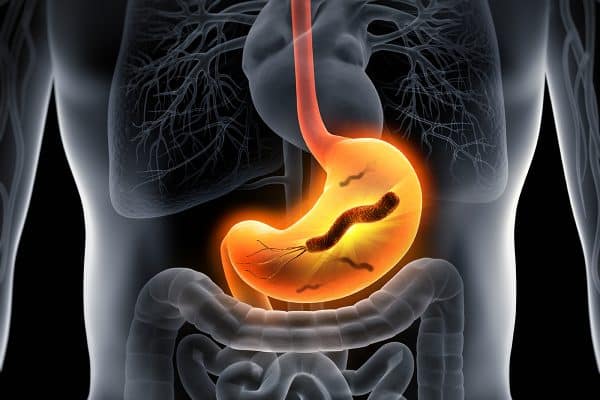- Science and Society
Professor Cathy Vaillancourt in charge of coorganizing the IFPA 2024 annual meeting.

Hundreds of specialists from around the world will gather in Montreal from September 2 to 6 for the International Federation of Placenta Associations (IFPA) 2024 Annual Meeting. Scientists will discuss the latest advances in research under the theme “The fabulous long destiny of the placenta: Shaping life after pregnancy.” This major event, which is being held in Quebec for the first time, is being co-organized by Professor Cathy Vaillancourt, a specialist in the involvement of environmental factors in the neuroendocrinology of the human placenta at the Institut national de la recherche scientifique (INRS), and Sylvie Girard, a professor at the Mayo Clinic who specializes in the immune contribution to pregnancy complications.

“The placenta is a complex and fascinating organ that remains poorly understood. It is a fast-growing research topic that could shed light on pregnancy disorders and the future health of mother and child. Quebec is teeming with researchers who are interested in the placenta or working on related topics. This event promises to be full of fascinating discussions with great potential for future national and international collaborations.”
Cathy Vaillancourt, INRS professor specializing in pregnancy and toxicology
Nearly 400 people are expected to attend the event in Montreal, where world-renowned specialists will give groundbreaking presentations on pregnancy and the placenta.
They will cover a variety of topics related to the placenta, as well as maternal and fetal health:
- Effects of microplastics on the placenta and the baby’s health;
- Effects of urban air pollution on child and placental development;
- Effects of alcohol, cannabinoids, and opioids on pregnancy;
- Prenatal depression and its effects on the placenta;
- Placenta-brain and placenta-heart communication;
- Long-term effects of pregnancy on women’s health;
- Effects of paternal health on the health of the unborn child;
- Development of placenta models on microchips;
- Pre- and post-partum care for women;
- New 3D imaging techniques;
- Eco-anxiety
Key research on placenta and pregnancy at INRS
In their laboratory, Professor Vaillancourt and her team are investigating the involvement of environmental factors (such as depression, stress, pollutants, and even drugs) in the functioning and development of the placenta, and consequently on the health of the fetus.
According to the researcher, better understanding the way environmental factors affect the placenta will help improve the health of pregnant people and their unborn children.
“The placenta is often seen as a sort of safety barrier for the fetus, and that anything that ‘doesn’t pass’ from mother to baby isn’t dangerous. However, that’s a myth; anything that affects the placenta is going to affect the baby as well. Defects or changes in placental function or development indicate that something has happened during pregnancy that may have short-, medium-, or long-term effects on the health of both mother and baby,” explains the researcher.
“It’s a key organ whose role in maternal and fetal health has long been underestimated.”
Cathy Vaillancourt
The doctoral student Hélène Pinatel, who is co-supervised by Professor Vaillancourt and Professor Laurent Chatel-Chaix (head of the Containment Level 3 Laboratory, or CL3, at INRS), will present the latest findings from her work on the impact of the coronavirus on pregnancy. The student studied the repercussions of maternal COVID-19 infection on the child and the placenta. Does the virus persist in the placenta? What are the risks for the baby?
At the conference, Linda Ok, a doctoral student in Professor Vaillancourt’s laboratory, will also present the findings from her study on the effects of maternal depression (with or without antidepressant use) during pregnancy on the placental proteome.
To find out, the team infected placental cells with SARS-CoV-2 to see if it replicated. This project is being carried out in collaboration with Professor Géraldine Delbès.
In a similar vein, professor and sociologist Laurence Charton has collaborated with INRS colleagues Géraldine Delbès, Laurent Chatel-Chaix, Jean-Charles Grégoire, Cathy Vaillancourt, and Nong Zhu to document and analyze the psychosocial impact of the pandemic on pregnant women, from an interdisciplinary perspective. The study was carried out in Montreal and Abitibi-Témiscamingue among pregnant women who gave birth during the COVID-19 pandemic. The results of this research should contribute to a better understanding of the key factors surrounding the transition to parenthood during a pandemic.
Public conference: The Governing Organ of Pregnancy: The Placenta Demystified!
As part of the IFPA 2024 annual meeting, the public is invited to learn about the unique role the placenta plays in pregnancy, fetal development, and maternal health at a public lecture and discussion to be held on Monday, September 2, from 4:15 to 6:45 p.m. in the Agora du Cœur des sciences at UQAM. During this free event, several specialists will provide answers to questions the public may have about pregnancy and parenthood.



